Balancing “Essential” With Safe and Ethical During COVID-19: Part 2
The following Information was posted on 4/7/2020 by Phil Koehl, former Illinois Association of School Social Workers (IASSW) Executive Director. He is also the Chairperson of the IDFPR SW Examining and Disciplinary Board (Illinois). As such, he gets periodic updates from the Association of Social Work Boards (ASWB).
COVID-19 Telehealth: Providing Mental Health Support Safely, Ethically, and Competently
“It is in the nature of social workers to work closely and in-person with people. But what to do when the best course of action for our country in order to address a pandemic is to practice social distancing? For students eager to make a positive impact and earn valuable experience, we need to look to technology.
As educational institutions seek to keep their students and faculty safe and respond to the spread of COVID-19, many have moved to virtual learning and sent students home for the semester. CSWE earlier this week established temporary guidelines allowing programs to require students to complete 85% of current field placement required hours in recognition of this challenge. Accredited social work programs are required to have field education through “in-person contact” of 340 hours for baccalaureate programs and 765 hours for master’s programs according to the temporary requirements. Given the times, CSWE broadened its interpretation to include remote-based field activity. Remote field activity can include engagement in field-related assignments, trainings, and virtual meetings.
Social work students should not be worried about how these temporary requirements will affect their ability to become licensed. According to ASWB, almost all states accept CSWE accredited degrees with no specific hourly requirements.
The COVID-19 crisis presents a new opportunity for social workers to demonstrate that we can safely, ethically, and competently use a variety of technologies to provide a broad range of social and health services. Federal, state, and local governments are deeply concerned about the pandemic’s impact on the accessibility of mental health services to people in need and recognize that electronic practice can overcome the barriers created by social distancing practices and containment efforts.
In times of public health crisis, such as the current pandemic, emergency orders can be issued that supersede established regulation to reduce barriers for service provision. Regulatory boards have the challenging responsibility of determining how to respond to emergency orders while maintaining public safety.
Licensed clinical social workers who provide services to Medicare beneficiaries can now use expanded electronic devices and platforms in addition to video conferencing platforms that were permissible prior to the pandemic. A number of states are now allowing these clinicians to use audio-only devices such as telephone landlines, extending a critical lifeline for older adults who are hard-hit by the pandemic. NASW continues to advocate for expanded coverage to meet these needs. Further, many—but not all—states are permitting clinicians to provide services to clients located in other states during this public health emergency. Clinicians should check ASWB’s regulatory provisions page for updates.
The unique lens of the social work profession is person in environment, which places the client at the center of all planning and service provision. Technology, when used with careful attention to the client’s unique circumstances, can benefit and serve clients at any time. Being able to use electronic practice enables clinicians to serve many people who are struggling with anxiety, depression, and other issues related to the pandemic as well as those who were receiving services prior to this public health emergency. Social workers who have not provided telehealth services previously now have an opportunity to explore this new practice environment. Questions may arise that the technology practice standards written by this group will answer.
Allan Barsky, Ph.D., JD, MSW, addressed answers to these questions, saying “if it is feasible for social workers to use HIPAA-compliant apps, they should do so. And if workers need to use non-HIPAA-compliant apps in the short-term, it would still be prudent to consider how to gain access to HIPAA-compliant apps in the longer term. Some videoconferencing apps, such as doxy.me, are free, HIPAA-compliant, and relatively easy to learn and use.”
REMEMBER: These are recommendations from ASWB and NOT IDFPR, ISBE (or NYSED, etc.) They are posted for your information only.

